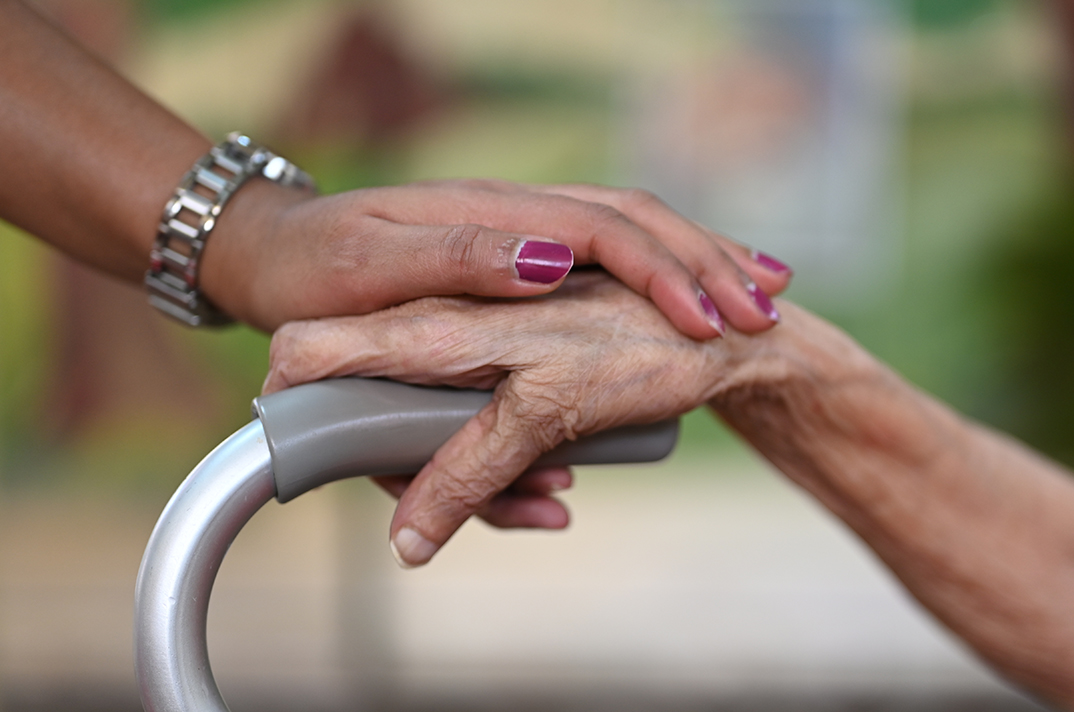Almost three years ago, Chennai-based IT professional Sudha MN (name changed on request) was outraged when her manager, a man, cracked a joke about her age.
“I was 44 and I was called an aunty during an office party,” says Sudha, not wanting to give her company’s name. “Everyone laughed. All younger than me. Frankly, I thought I would lose my job. We all know companies prefer young blood.
“With each passing day, I am growing older. I am worried. Like many, I too might lose my job since older people are labelled a liability.”

Sudha’s concerns regarding getting older and facing discrimination are genuine.
Often, cases of bias and discrimination against older employees are brushed under the carpet. But recent revelations of the sheer amount of workplace harassment, prejudice and name-calling faced by older employees at IBM, an American multinational company, served as a wake-up call.
According to Business Insider, an American news website, internal emails show IBM executives calling older workers “dinobabies” and discussing plans to make them “an extinct species”. The information was based on a filing in an ongoing age discrimination lawsuit against the company which started in 2018 after IBM fired tens of thousands of workers who were over 40.
“Ageing is always a concern at workplaces because the general notion is that young people work more and harder and hence are more productive and a bigger asset to their employers,” said a retired human resource executive from Hyderabad-headquartered technology giant on condition of anonymity. “Being perky, energetic or enthusiastic don’t necessarily translate to better performers. This bias becomes more pronounced when it comes to women workers.”
Old people, mostly those over 60, are increasingly facing social, political and economic isolation.
Talking about Sudha’s experience in her office, Bengaluru-based psychologist, researcher and behavioural expert A Sridhara says, “It’s ageism. It is everywhere. We as a society have developed aversion towards old people. We all want to look young and beautiful. We lie about our actual age. We neglect and belittle people whom we consider old. Again, it is subjective. For some, an old person is one who is above 60 years old and for others, it could be above 30.”
In India, a person is officially considered a senior citizen — a polite way of referring to an older person — when she turns 60 years old. But even younger people can come up against ageism.
This pervasive practice of stereotyping, dividing and discriminating people based on their age does not seem too. We hardly talk about it. But we are living in denial. In the absence of awareness and conversation about ageism, it is difficult to understand its implications.
“As a society we think ageism is an individual problem. We face it in silence because talking or complaining about it is unheard of,” says Manisha Gupta, a 50-year-old mother of two teenage boys from Kota, Rajasthan.
Like many people, Manisha is afraid of getting older. “Getting older is not easy, especially for a woman,” she says. “I often face double discrimination. First, as a woman and then as an older woman.”
Along with the physical aspect of growing old, where a person develops various health-related changes and issues, aging has social, political and economic implications.
Sridevi (who goes by her first name only), an advisor to the Akhila Karnataka Vyyovrudhara Okkoota (Aikyatha), a Karnataka-based NGO working for the elderly, says senior citizens faced further marginalisation during the coronavirus pandemic. “The neglect and abuse of senior citizens has a long history. Once a person becomes old and infirm, we relegate them to a corner,” she says.
The NGO found that hundreds of elderly people in Karnataka lost their health, social and food security during the pandemic. “Unfortunately, a lot of old people have been abandoned by the government. This is the worst form of ageism,” Sridevi says.
According to the World Health Organization (WHO), globally one in two people are ageist — those who discriminate against others based on their age — against older people. Notably, ageism can run both ways. In Europe, younger people report more about ageism than other age groups, says the WHO.
As per data, the number and proportion of people who are 60 years old and above is increasing worldwide. In 2019, the number of people who are 60 years old and above was one billion. This is projected to increase to 1.4 billion by 2030 and 2.1 billion by 2050. This increase is occurring at an unprecedented pace and will accelerate in coming decades, particularly in developing countries.
Take the case of India. As per the Census 2011, there are nearly 104 million elderly persons (aged 60 years and above) in India. The number is likely to increase to 173 million by 2026, according to a report by the United Nations Population Fund and HelpAge India.
So it’s time for citizens and policymakers alike to take notice of the problem of ageism. Experts say policy and law, educational activities and intergenerational interventions are the three main ways to fight against this problem.
The WHO says ageism erodes solidarity between generations and thus devalues and limits ability to benefit from what younger and older populations can contribute.
“Ageism adversely impacts the health, longevity and well-being of people,” it says. “It also has far-reaching economic consequences. For example, ageism is associated with earlier death (by 7.5 years), poorer physical and mental health, and slower recovery from disability in older age. Ageism also increases risky health behaviours, such as eating an unhealthy diet, drinking excessively or smoking, and reduces our quality of life.”















